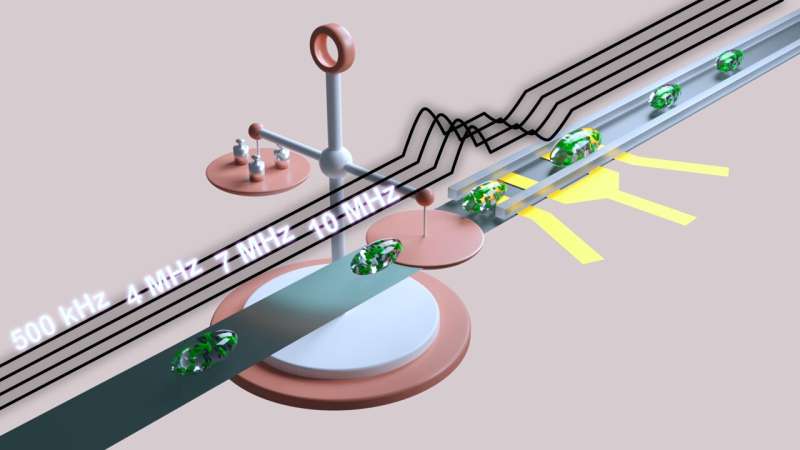From outside to inside: A rapid and precise total assessment method for cells

Having a good eye for detail is an essential skill for many professions. In particular, biologists use special techniques and advanced technology to analyze individual cells with unprecedented precision. Impedance cytometry is one experimental method that can reveal specific characteristics of living single cells. This technique requires electrical penetration, in which high-frequency current can freely pass through the cell membrane, without damaging the cell. Now, researchers from Japan have determined optimal conditions to perform impedance cytometry. Their work may lead to rapid assessment of cells during culture in biological experiments.
An improved method for measuring the morphology and biomass of single cells using impedance cytometry has been introduced in a recently published study in Microsystems & Nanoengineering. Impedance cytometry involves applying high-frequency voltages to electrodes to measure complex impedance, which can provide information about the shape and effective volume of the cell. In the study, researchers led by Nara Institute of Science and Technology used different phases of voltage signals at four frequencies. They showed that applied voltages with frequencies of around 7 MHz are able to pass through the membrane of Euglena gracilis cells. Higher frequencies can monitor changes in biomass, while lower frequencies can track volume changes.
When a high-frequency electrical field penetrates the cell membrane, the uneven intracellular distribution tilts the impedance pulses to the left or right, which has been verified in simulation and experiments. “Ultimately, our method for determining the conductivity of the cell membrane relies on the degree of tilt caused by the electrical pulses,” says author Yoichiroh Hosokawa. The team also performed calibration studies using beads to better understand the underlying physical mechanisms of this effect.
“This research enables the easy determination of the electrical penetration of a cell membrane, and the proposed platform is applicable to multiparameter assessment of the organism’s state during cultivation,” says senior author Yaxiaer Yalikun. This platform may be easily integrated into microfluidic systems for the scalable monitoring of biological experiments.
The need for efficient and highly accurate analysis of living single cells may be met by this new impedance cytometry method developed by the research team led by Nara Institute of Science and Technology. Future applications could be extended to cells in mammals to monitor specific membrane changes in fields such as oncogenesis and cell aging.
Examining cell shapes without a microscope
Tao Tang et al, Assessment of the electrical penetration of cell membranes using four-frequency impedance cytometry, Microsystems & Nanoengineering (2022). DOI: 10.1038/s41378-022-00405-y
Provided by
Nara Institute of Science and Technology
Citation:
From outside to inside: A rapid and precise total assessment method for cells (2022, June 24)
retrieved 24 June 2022
from https://phys.org/news/2022-06-rapid-precise-total-method-cells.html
This document is subject to copyright. Apart from any fair dealing for the purpose of private study or research, no
part may be reproduced without the written permission. The content is provided for information purposes only.
For all the latest Science News Click Here
For the latest news and updates, follow us on Google News.

